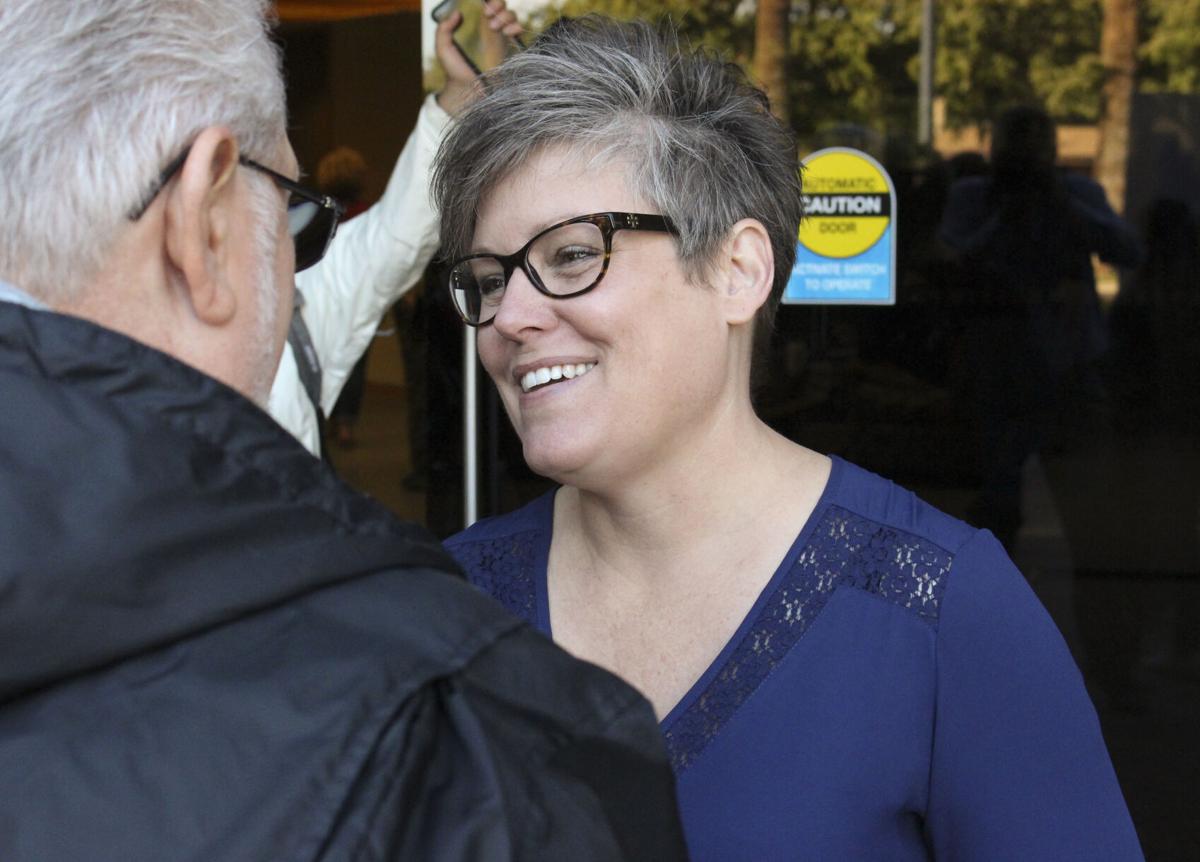PHOENIX — The Attorney General’s Office is threatening to prosecute — and seek to jail — Secretary of State Katie Hobbs if she follows through with her plans to temporarily take an online portal for candidate petition signatures offline.
Hobbs told candidates earlier this month that what is known as the E-Qual system would become unavailable in March for those running for legislative and congressional seats. Hobbs said that is to give time to revamp the system to account for the new districts that were drawn for the 2022 elections.
Assistant Attorney General Jennifer Wright warns her not to do that.
“The purpose of this letter is to inform you that any such action would be contrary to law,” Wright wrote to Bo Dul, Hobbs’ attorney.
She said Hobbs must take “all steps necessary” to keep the system online “to comply with the law and her legal duties.”
There are teeth in that threat.
Wright said that, at the least, it is a Class 3 misdemeanor for Hobbs to knowingly fail to refuse to perform a duty required under state election laws. That carries up to 30 days in jail and a $500 fine.
She said the refusal to keep E-Qual online could be a felony that carries a penalty of a year in state prison.
Hobbs is not backing down.
The law Wright is saying she would be violating simply requires the secretary of state to provide a system that allows candidates to collect nominating petition signatures online, said Hobbs’ aide Murphy Hebert.
“E-Qual is that system,” she said. “The fact that the system may need to be offline for a period of time for updates to the system or, here, due to redistricting requirements beyond the control of our office, doesn’t amount to a violation of the statute.”
The threat to prosecute Hobbs does not come in a political vacuum.
Wright’s boss, Republican Mark Brnovich, has been openly bickering with Democrat Hobbs for more than a year over everything from the legal positions she has taken when the state is sued over its election practices, to changes in the Election Procedures Manual.
Both also are in the middle of high-profile campaigns seeking higher office: Brnovich for U.S. Senate and Hobbs for governor.
This latest squabble is a direct result of the decennial redistricting.
The E-Qual system allows any individual to go online, provide some identifying information, and get a list of the candidates for whom he or she can sign nominating petitions. For races that are not statewide, voters are limited to signing the petitions of legislative and congressional candidates from the same district.
This is the first time the system has been used during redistricting. And the Independent Redistricting Commission is just putting the finishing touches on the new district lines.
Recognizing there would be a delay in enacting new districts, lawmakers previously voted to allow candidates to get nominating signatures from residents of their existing districts, even if those people would not be in their new districts. So Hobbs and her office set up E-Qual to use those existing lines in determining who can sign which petitions.
But the state election director, Kori Lorkick, said the system needs to be taken down in March to allow counties, which administer elections, to update with the new districts.
And since it won’t be operational again until after the April 4 deadline for petitions, that will mean candidates who have not gotten all their signatures online by that point will need to supplement them the old -fashioned way: with pen and paper.
Lorick said there’s really no other option as the E-Qual software, purchased before Hobbs took office in 2019, cannot accommodate two separate maps and district lines.
None of that apparently holds any water with the Attorney General’s Office. Wright said the statute says “the secretary of state shall provide” the online system.
“We urge the secretary of state to fix the system without delay,” she wrote.





